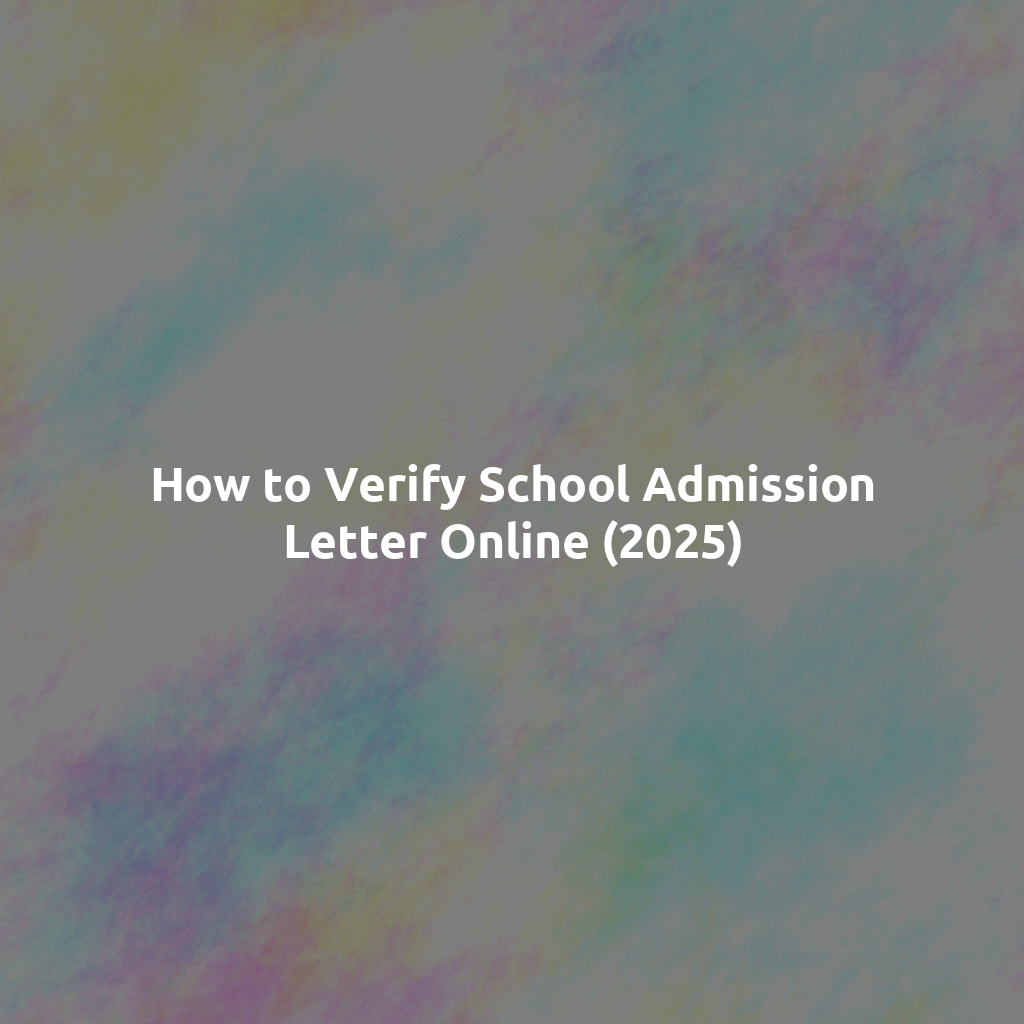Introduction to Federal Universities and Their Role in Higher Education
Federal universities play a critical role in shaping the education landscape.
They serve as hubs of learning and research throughout the nation.
These institutions are funded and operated by the federal government.
As a result, they often have access to substantial resources.
Their primary mission is to provide quality higher education to students.
Advertisements
Moreover, they foster innovation and contribute to national development.
Accessibility and Inclusivity
Federal universities promote accessibility to education for all citizens.
They offer a range of programs, including part-time studies.
This flexibility allows working professionals to pursue their degrees.
Additionally, these institutions support diverse student populations.
As a result, they help bridge educational gaps in the community.
Research and Development
Federal universities are at the forefront of research initiatives.
They engage in various projects that address societal issues.
Faculty and students collaborate to drive innovation and discoveries.
Furthermore, these institutions often partner with industries for applied research.
This approach enhances their educational programs and community impact.
Advertisements
Contributions to Economic Growth
By investing in research and skilled graduates, federal universities spur economic growth.
Their graduates enter the workforce equipped with essential skills.
Moreover, they contribute to local and national economies through employment.
Many federal universities also establish entrepreneurial incubators.
These incubators support startups and foster a culture of innovation.
Overview of Part-Time Programs
Definition of Part-Time Programs
Part-time programs provide flexible educational options for students.
These programs typically accommodate working individuals or those with other commitments.
Students can pursue their studies without sacrificing their jobs or personal lives.
Benefits of Part-Time Programs
Part-time programs offer numerous advantages to learners.
Firstly, they provide flexibility in scheduling classes.
This flexibility allows students to balance work and study effectively.
Moreover, part-time education can reduce financial burdens.
Students can work while studying, helping to fund their education.
Additionally, learners can apply their acquired skills in real-time.
This immediate application enhances the educational experience.
Furthermore, part-time programs allow for gradual progression through coursework.
Students can tailor their pace and workload based on personal circumstances.
Lastly, part-time programs often create opportunities for networking.
Students interact with peers who share similar responsibilities and aspirations.
Criteria for Federal Universities Offering Part-Time Programs
Federal universities provide a variety of part-time programs to accommodate diverse student needs.
Additionally, these institutions follow specific criteria to ensure quality education.
Accreditation Standards
First and foremost, universities must meet national accreditation standards.
This accreditation ensures that programs maintain high-quality educational frameworks.
Moreover, recognized bodies regularly assess universities to uphold these standards.
Program Availability
Universities need to offer a wide range of part-time programs.
These programs should cover various disciplines, from arts to sciences.
Furthermore, flexibility in scheduling is crucial to accommodate working students.
Student Support Services
A strong support system enhances the educational experience.
Universities should provide academic advising and counseling services.
Additionally, access to resources such as libraries and online materials is vital.
Workforce Partnerships
Collaboration with local industries benefits students greatly.
Universities should establish partnerships that facilitate internships and job placements.
This connection between education and the workforce increases employability.
Financial Aid and Scholarships
Financial assistance makes education more accessible for part-time students.
Universities must offer scholarships tailored to part-time programs.
Additionally, providing information on available funding options is essential.
List of Federal Universities Providing Part-Time Programs
Part-time programs offer flexibility for students with busy schedules.
Many federal universities have recognized this need and provide suitable options.
This section highlights universities that offer part-time programs across various fields.
Benefits of Part-Time Programs
Part-time programs allow students to balance education with work or family commitments.
Additionally, they often offer a wider range of scheduling options.
This flexibility can lead to better academic performance and reduced stress.
Federal Universities Offering Part-Time Programs
- University of Lagos
- Ahmadu Bello University
- University of Nigeria, Nsukka
- Federal University of Technology, Owerri
- University of Ilorin
University of Lagos
University of Lagos offers various part-time programs in disciplines like Business and Education.
Students can enroll in evening or weekend classes to suit their schedules.
Ahmadu Bello University
Ahmadu Bello University supports part-time learners with flexible course offerings.
The university has established a strong framework for distance and part-time education.
University of Nigeria, Nsukka
At the University of Nigeria, part-time programs help working professionals advance their careers.
The institution offers options in multiple faculties, including Arts and Sciences.
Federal University of Technology, Owerri
This university focuses on technical courses with part-time schedules.
Students can gain practical skills while managing their employment.
University of Ilorin
University of Ilorin provides part-time opportunities in various professional fields.
Courses are designed to accommodate the schedules of adult learners.
Program Categories Offered in Part-Time Formats
Business Administration
Part-time programs in business administration cater to working professionals.
They provide flexibility to enhance career skills while maintaining work commitments.
Courses cover management, accounting, and marketing principles.
Furthermore, networking opportunities are abundant in these programs.
Engineering
Many federal universities offer part-time engineering programs.
These programs allow students to balance work and study effectively.
Specializations include mechanical, civil, and electrical engineering.
Students gain practical experience through hands-on projects and labs.
Information Technology
Part-time IT programs are designed for those seeking to advance in technology careers.
Students learn about software development, cybersecurity, and data analysis.
These programs often include online courses, enhancing accessibility.
Additionally, they prepare students for industry certifications.
Health Sciences
Part-time health sciences programs focus on various healthcare fields.
They accommodate working professionals who wish to further their education.
Courses may include nursing, public health, and healthcare administration.
Flexibility allows students to engage in clinical practice while studying.
Education
Federal universities offer part-time education programs for aspiring teachers.
Courses focus on pedagogy, curriculum development, and educational psychology.
These programs cater to both undergraduate and graduate students.
Students often engage in fieldwork to enhance their teaching skills.
Social Sciences
Students can pursue part-time programs in social sciences, such as sociology and psychology.
These programs appeal to those interested in understanding societal dynamics.
Courses provide critical thinking skills and research methodologies.
Part-time formats allow for personal and academic growth simultaneously.
Application Process for Part-Time Programs in Federal Universities
Researching Available Universities
Start by researching federal universities that offer part-time programs.
Check their official websites for details on available courses.
Consider factors like location and course content when narrowing down options.
Understanding Admission Requirements
Each university has specific admission requirements for part-time programs.
Commonly required documents include academic transcripts and identification.
Some universities may request recommendation letters or personal statements.
Preparing Your Application
Begin preparing your application well in advance of the deadline.
Gather all necessary documents to complete your application efficiently.
Pay attention to any specific formats or submission guidelines provided by the university.
Submitting Your Application
Submit your application through the university’s official portal.
Ensure that you complete all required fields accurately.
Many universities provide confirmation emails upon successful submission.
Following Up
After submission, keep track of your application status through the university’s portal.
Contact the admissions office if you have any questions or concerns.
Be prepared for possible interviews or tests that some programs may require.
Challenges and Considerations for Part-Time Students
Balancing Work and Study
Part-time students often juggle jobs alongside their studies.
This balancing act can be stressful and time-consuming.
Furthermore, it may hinder their academic performance.
Students should develop effective time management skills.
Setting priorities helps in managing both responsibilities.
Financial Considerations
Part-time study can also present financial challenges.
Students might not qualify for certain financial aids.
This limitation requires careful financial planning.
Additionally, tuition fees can be a significant burden.
They should explore scholarship opportunities or grants.
Social and Academic Isolation
Part-time students may experience feelings of isolation.
They often have fewer opportunities to interact with peers.
This lack of community can be discouraging.
Engaging in student organizations can help mitigate this.
Students should seek out events to connect socially.
Course Load and Schedule Flexibility
Choosing the right course load is crucial for success.
Overloading can lead to burnout and academic fails.
Moreover, part-time schedules vary significantly across programs.
This inconsistency can complicate planning and commitment.
Students need to assess their ability to handle classes.
Access to Resources
Part-time students sometimes face limited access to resources.
Full-time amenities, like advising, may not be available.
It’s essential to research what resources are offered.
Using online tools can enhance their learning experience.
They should reach out for assistance when needed.
Future Trends in Part-Time Higher Education Programs
Growing Demand for Flexibility
Enrollment in part-time programs is rising steadily across many institutions.
Students increasingly seek programs that can accommodate their busy schedules.
This trend signifies a shift towards personalized education solutions.
Integration of Technology in Learning
Online platforms are becoming essential for part-time education.
These tools facilitate collaboration and engagement among students.
Additionally, they allow learners to access resources anytime and anywhere.
Expanded Program Offerings
Universities are diversifying their part-time programs to attract more students.
New fields of study are emerging in response to industry needs.
For example, courses in data science and cybersecurity are gaining popularity.
Enhanced Support Services
Institutions now prioritize support services for part-time students.
This includes academic advising, career counseling, and networking opportunities.
Such resources help students navigate their educational journeys successfully.
Focus on Lifelong Learning
Part-time education aligns with the growing emphasis on lifelong learning.
This approach encourages individuals to continually upgrade their skills.
As a result, universities are increasingly offering non-degree options and certifications.
Collaboration with Industry
Part-time programs are increasingly collaborating with employers to ensure relevance.
This partnership helps design curricula that meet current job market demands.
Furthermore, internships and practical experiences enhance student learning outcomes.






